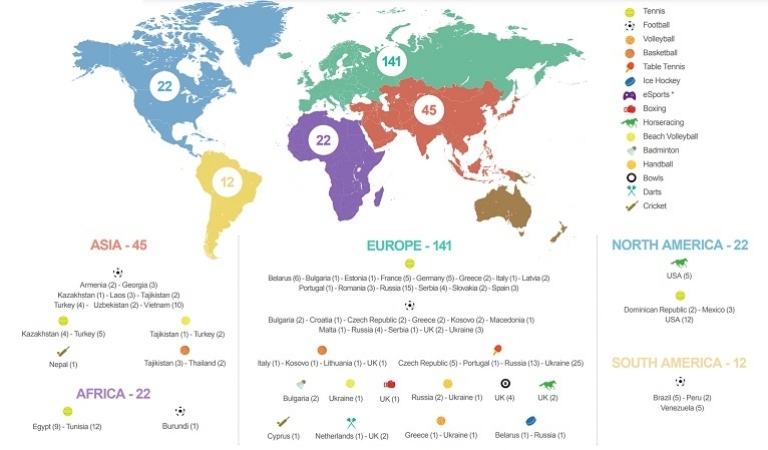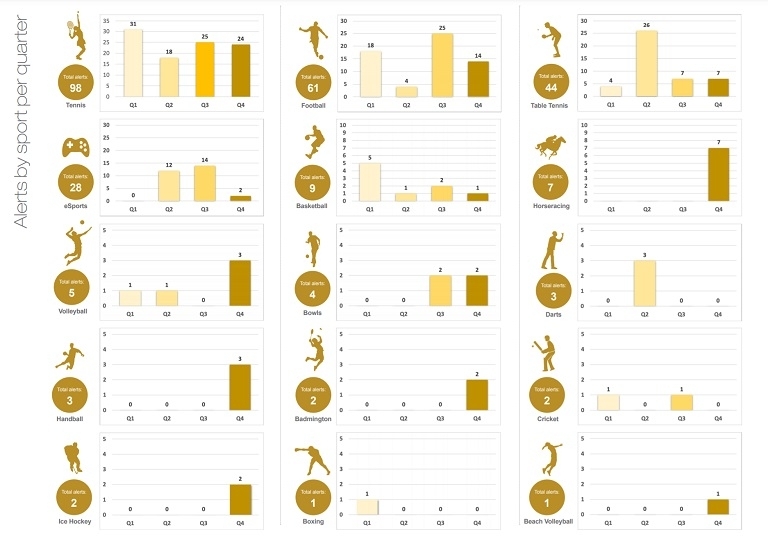

270 alerts were reported to the relevant authorities in 2020. This is a 48% increase of 87 alerts on the 2019 figure of 183 but consistent with the 266 and 267 alerts reported in 2017 and 2018 respectively.
Khalid Ali, CEO of IBIA, said: “2020 was a turbulent year for many sectors including the betting industry, which had to adjust its market offering due to the global sports lockdown. As a result, IBIA focused its integrity monitoring activity to take account of new sports tournaments and competitions that emerged.”
“The association is seeking to work with stakeholders to address any potential integrity issues that may be associated with these new events through a range of actions, including promoting a set of standards for the collation of sports data for betting. Whilst there was an increase in overall alerts from 2019 to 2020, it should be noted that the 2020 cases are consistent with the number of alerts reported in both 2017 and 2018”, he added.

Other key data for 2020:
During the four-year period 2017-2020, IBIA reported 986 alerts across 17 sports and 95 countries, with our unique customer account data leading to numerous sanctions being imposed.

The International Betting Integrity Association is the leading global voice on integrity for the licensed betting industry. It is run by operators for operators, protecting its members from corruption through collective action. Its monitoring and alert platform is a highly effective anti-corruption tool that detects and reports suspicious activity on its members’ betting markets.
The association has longstanding information sharing partnerships with leading sports and gambling regulators to utilise its data and prosecute corruption. It represents the sector at high-level policy discussion forums such as the IOC, UN, Council of Europe and European Commission.
Established in 2005, and formerly known as ESSA (Sports Betting Integrity), the International Betting Integrity Association is the leading global voice on integrity for the licensed betting industry. IBIA’s Members share a common goal of combating betting corruption to protect the integrity of sport and their businesses. Building alliances is at the core of our approach and is focused on the following:
*Safeguarding Betting Integrity
*Advocating Informed Policies
*Research & Education
Source: GMB / IBIA